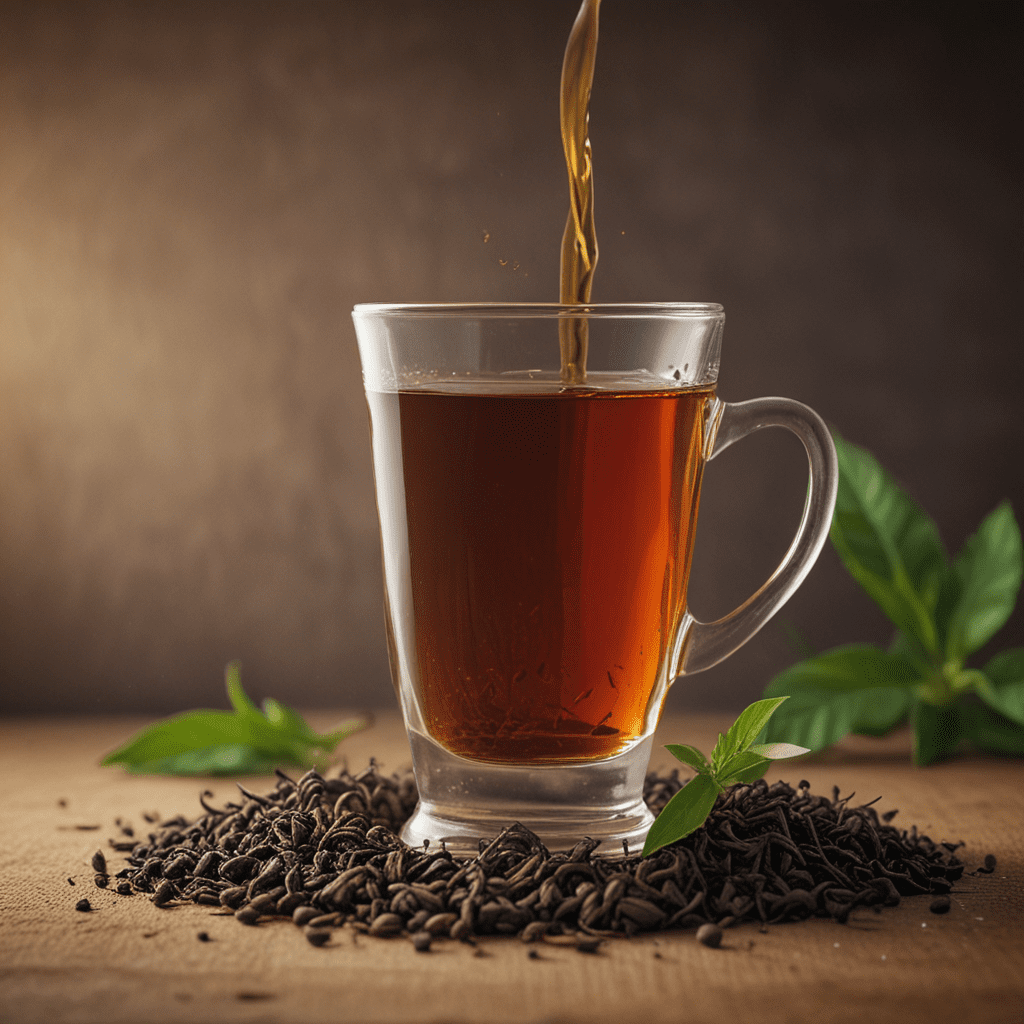
Introduction: The Therapeutic Benefits of Ceylon Tea Infusions
Ceylon tea, a renowned variety of black tea from Sri Lanka, has long been celebrated for its rich flavor and vibrant history. Beyond its delightful taste, Ceylon tea also boasts an array of therapeutic properties that have been recognized for centuries. This article explores the scientific evidence behind the numerous health benefits of Ceylon tea infusions, offering insights into its potential to enhance well-being and promote overall health.
Antioxidant Properties:
Ceylon tea is a rich source of catechins and theaflavins, powerful antioxidants that help protect cells from damage caused by free radicals. Free radicals are unstable molecules that can accumulate in the body and contribute to chronic diseases such as heart disease, cancer, and neurodegenerative disorders. The antioxidants in Ceylon tea effectively neutralize free radicals, reducing their harmful effects and safeguarding cellular health. This antioxidant activity makes Ceylon tea a valuable addition to a healthy diet, offering protection against oxidative stress and its associated health risks.
Cardiovascular Benefits:
Research suggests that Ceylon tea consumption may support cardiovascular health by reducing blood pressure and cholesterol levels. The polyphenols present in Ceylon tea have been shown to inhibit the secretion of ACE (angiotensin-converting enzyme), a hormone that constricts blood vessels and increases blood pressure. Additionally, Ceylon tea has been found to lower LDL (bad) cholesterol and raise HDL (good) cholesterol, creating a more favorable lipid profile. Regular consumption of Ceylon tea may, therefore, reduce the risk of developing heart disease and promote overall cardiovascular well-being.
Neuroprotective Effects:
Ceylon tea exhibits neuroprotective properties that may help maintain cognitive function and protect against neurodegenerative diseases such as Alzheimer's and Parkinson's. The anti-inflammatory compounds in Ceylon tea reduce inflammation in the brain, which is a key factor in the development of neurodegenerative disorders. Moreover, Ceylon tea contains epigallocatechin-3-gallate (EGCG), a potent antioxidant that has been shown to promote the growth of new neurons and protect existing ones from damage.
Immune Boosting:
Ceylon tea supports the immune system by stimulating immune cells and enhancing their ability to fight off infections. The polyphenols in Ceylon tea have antibacterial and antiviral properties, providing additional protection against pathogens. Additionally, Ceylon tea contains L-theanine, an amino acid that promotes relaxation and may reduce stress levels, which can have a positive impact on immune function. By boosting the immune system, Ceylon tea helps the body resist infections and maintain overall health.
Anti-inflammatory Properties:
Ceylon tea possesses potent anti-inflammatory properties that can reduce inflammation throughout the body. The polyphenols in Ceylon tea inhibit the production of inflammatory cytokines, reducing their negative effects on tissues and organs. This anti-inflammatory activity may provide relief from conditions such as arthritis, Crohn's disease, and other inflammatory disorders. By reducing inflammation, Ceylon tea promotes overall well-being and improves the body's ability to function optimally.
Metabolic Health:
Ceylon tea has been shown to support metabolic health by improving insulin sensitivity and reducing blood sugar levels. The polyphenols in Ceylon tea increase insulin sensitivity, allowing the body to utilize insulin more effectively. This improved insulin sensitivity helps regulate blood sugar levels, reducing the risk of developing type 2 diabetes and its associated complications. Additionally, Ceylon tea has been found to increase energy expenditure and promote weight loss, making it a potential aid in managing weight and preventing obesity.
Digestive Support:
Ceylon tea provides digestive support by soothing stomach upsets and alleviating digestive discomfort. The antispasmodic properties of Ceylon tea help relax the muscles of the digestive tract, reducing cramps and spasms. Additionally, Ceylon tea contains compounds that have antibacterial and antiviral effects, helping to combat infections that may cause digestive issues. Drinking Ceylon tea after meals can aid in digestion, reduce bloating, and alleviate symptoms of diarrhea and indigestion.
Stress Relief and Sleep Improvement:
Ceylon tea contains L-theanine, an amino acid that promotes relaxation and reduces stress levels. L-theanine increases the production of alpha brain waves, which are associated with a calm and relaxed state of mind. Additionally, Ceylon tea contains caffeine, which can provide a gentle boost of energy without the jittery side effects associated with coffee. The combination of L-theanine and caffeine in Ceylon tea promotes a balanced state of alertness and relaxation, making it an ideal beverage to enjoy throughout the day. Ceylon tea has also been shown to improve sleep quality by reducing anxiety levels and promoting a restful night's sleep.
FAQ:
Q: How much Ceylon tea should I drink per day to reap its health benefits?
A: Most experts recommend consuming 2-3 cups of Ceylon tea per day to experience its therapeutic effects.
Q: What is the best time to drink Ceylon tea?
A: Ceylon tea can be enjoyed at any time of day, but it is recommended to avoid consuming it too close to bedtime due to its caffeine content.
Q: Can Ceylon tea interact with any medications?
A: It is always advisable to consult with a healthcare professional before consuming any herbal teas, including Ceylon tea, if you are taking any medications.
Q: Is Ceylon tea safe for pregnant or breastfeeding women?
A: While Ceylon tea is generally considered safe for pregnant and breastfeeding women, it is recommended to limit consumption to no more than 1-2 cups per day due to its caffeine content.
Q: Where can I find high-quality Ceylon tea?
A: Look for Ceylon tea that is certified by the Sri Lanka Tea Board to ensure authenticity and quality.
